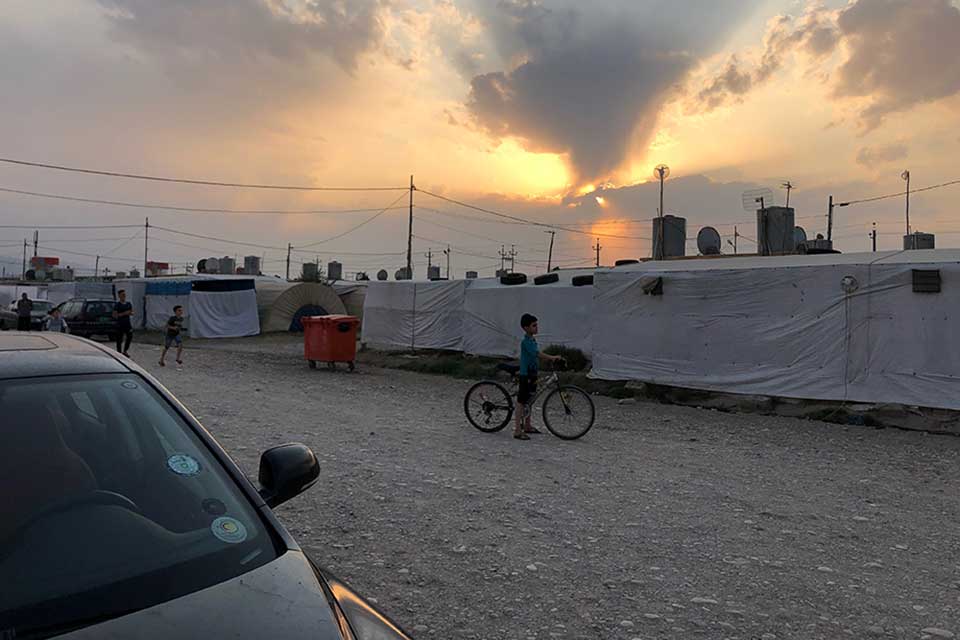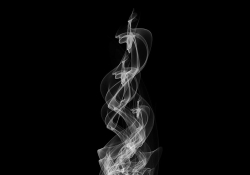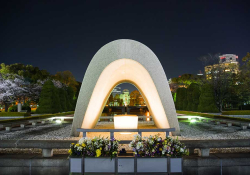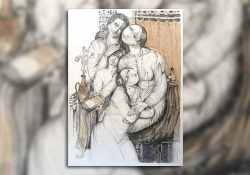Three Poems from Kurdistan

Non-Broadcast News
Today a fire broke out in two tents
The families shouted, the children cried and ran bare-assed from the bathroom
Still the fire extinguishers ignored their tears
And the fire was not extinguished
Do you understand now why water drips from our ears as soon as we hear screams?
* * *
The police car came, and we asked, Where is the ambulance, where is the fire engine?
The officer said, There’s no difference, the three cars scream the same
But the production of tears is your responsibility, oh IDPs!
* * *
There were no casualties, the camp manager told a local channel
What about the newborn who burned in his cradle?
It is true that he cried out once or twice but he did not produce any tears—
his eyes were not yet open
He did not hear his mother’s familiar sighs or lullabies
He had not yet endured enough pain to say he was an IDP
The journalist shouted at me: How can we write the news ticker with a lying heart:
“One person died as a result of a fire in two tents?”
What are the human losses if an IDP dies?
Translation from the Arabic
By David Shook with the author
Two Poems in an Incomplete Poem
For every fifty destroyed towns in this country, there is a poem as empty as the country.
And for every camp built, a long poem, longer than the range of a missile,
Deeper than the well of oblivion, which we never get to fall into,
Wider than Sasha Grey’s vagina, which is closer to the eyes of IDPs than anything else—
Let me tremble—
Broader than the space occupied by the stench of Safeen’s armpits.
A deeeeeep breath and I will return,
Larger than the earth,
Bolder than a tongue insulting the camp manager,
Kinder than my middle finger, which still rises toward the world whenever I hear the word “life,”
And lighter than the “hi” from a prostitute’s mouth,
Filled with more meaning than a cemetery,
Simpler than pitching a tent, more complicated than breathing in it.
Ephemeral News
DAILY MAIL: SAS troops find severed heads of 50 Yazidi sex slaves as they close in . . .
One hundred ears: one hundred earrings and shrieks and the voice of the deaf
One hundred eyes: bundles of eyelashes and years of vision
One hundred nostrils: suffocation by oxygen
One hundred cheeks: labs for experimental slaps—and the slaps proliferate like rats
One hundred lips: forgetting kisses and forgetting water and imprisoning language
One thousand four hundred years: the denial of reason, one thousand four hundred years
Is this what you mean by fifty heads?
Translation from the Arabic
By Bryar Bajalan and David Shook with the author
Editorial note: David Shook and Zêdan Xelef will be performing together at the Translating Possibilities event at London’s SOAS on September 12, 2019. For more, read “Bar Codes and Mass Graves: A Reading by Seven Emerging Êzîdî Poets” on the Poetry website.















